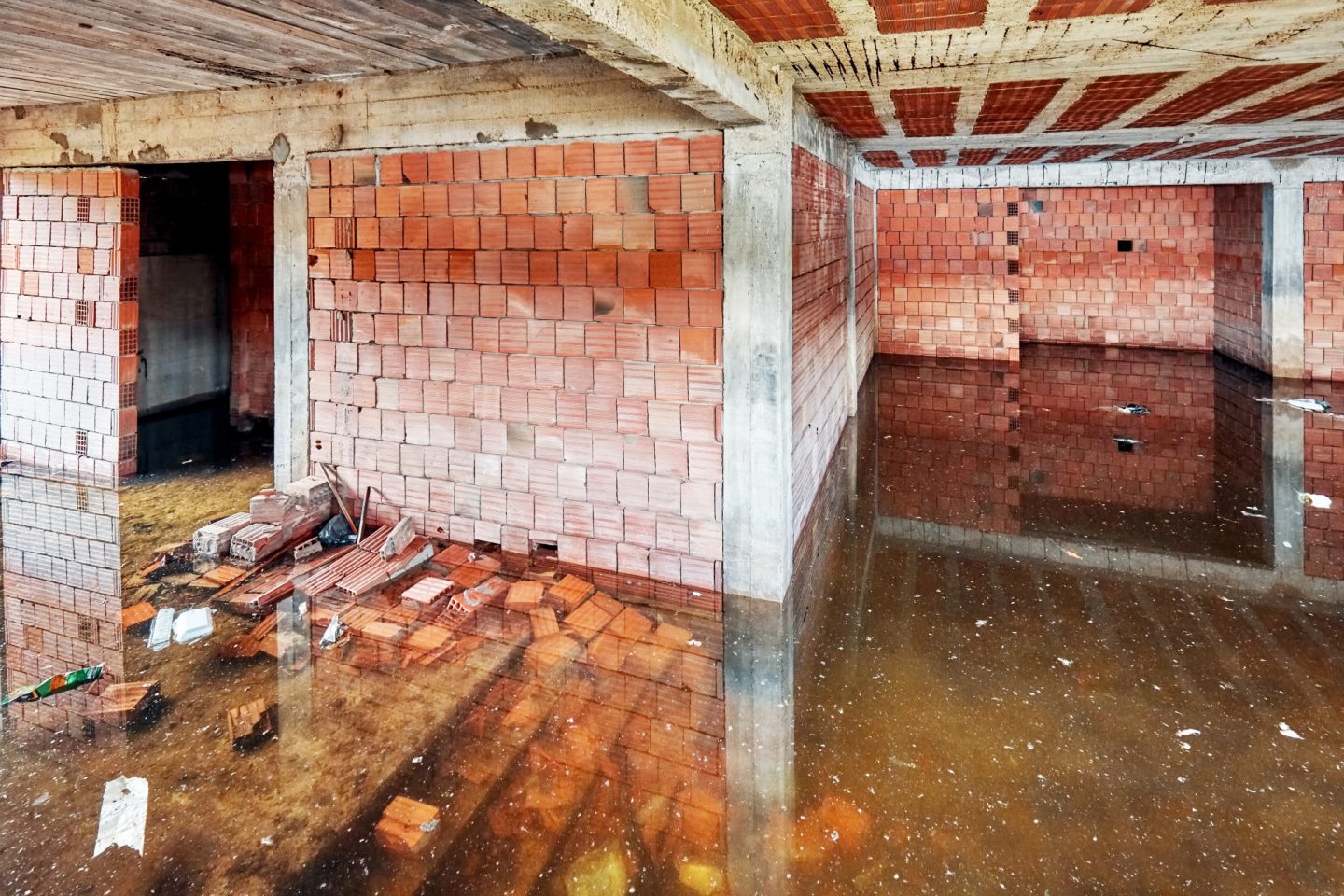
The cost of repairing a flooded basement ranges from a few hundred dollars to well over $10,000.
It all depends on how you act immediately after discovering the damage. Water damage compounds over time – and it only gets worse. The worst thing you can do is fail to act.
To save your home from further damage, you need to know what to do first.
Keep reading to learn exactly what to do if your basement floods.
Understanding Basement Floods: Signs and Causes
A flooded basement seems like a temporary inconvenience – but it isn’t.
Staying aware of the common causes of floods can help you identify problems before they turn into catastrophes. The most common causes of flooding include:
- Heavy rainfall
- Plumbing leaks
- Cracks in your home’s foundation
- Improper grading
- Clogged gutters
Heavy rainfall and clogged gutters are a bad combination. The excess water can pool in your basement and around your home’s foundations, causing extensive water damage. And if the ground around your home slopes toward your foundation, water may seep into your basement over time.
Long-Term Effects of Flooding
The long-term effects of a flooded basement can be severe. Water damage can cause structural weakness, impact your health, and cause undue and unnecessary stress.
Mold thrives in damp environments. It can pose serious health risks for people with allergies and asthma, and basement flooding only makes mold growth more likely.
The structural damage from extended water exposure weakens your home’s foundation, leading to potential safety hazards and a lower resale value.
What To Do if Your Basement Floods
If your basement floods, the most important thing is to act quickly to protect your home. Before you can begin with damage restoration, you’ll need to assess the extent of the damage and review your insurance policy.
Assess the Water Damage
Ensure it’s safe to enter your basement before stepping foot inside.
Be mindful of potential electrical hazards and wear protective gear, including rubber boots and gloves. You should never enter a flooded basement if you’re unsure about the risks.
If possible, determine the source of the flooding and shut off the water supply if necessary.
Take photos for insurance purposes and assess the extent of the water damage as best you can.
Review Your Insurance
The next step is to review your homeowner’s insurance policy. Skip to the water damage and basement flooding section and read through it to understand your position. Contact your insurance company to report the incident and discuss the next steps.
Relocate Your Belongings
Any valuables, antiques, and heirlooms in your basement need to be moved to protect them. Relocate your basement belongings into a dry room on an upper floor to protect them.
Hire Professionals for Water Damage Restoration
Hiring a professional water remediation and damage restoration company is crucial. These experts have the necessary training, tools, and experience to address the problems of a flooded basement.
They will remove water, dry out your basement, and address any mold damage. They can also offer valuable insight into the extent of any structural damage and advise you on how to proceed to protect your property.
Act Decisively
Dealing with basement floods is a daunting, heart-in-your-mouth task that leaves your mind racing. Keeping a cool head and understanding the causes and long-term effects of flooding will help you minimize the impact on your home, your belongings, and your life.
At Service First Restoration, we’re one of Orange County’s most trusted water damage companies. Our 24/7 service provides a fast response that can be at your door within 60 minutes. Click here to learn more.









